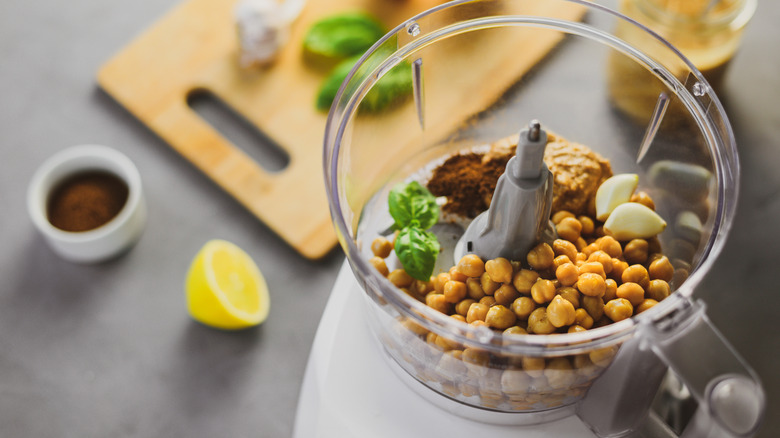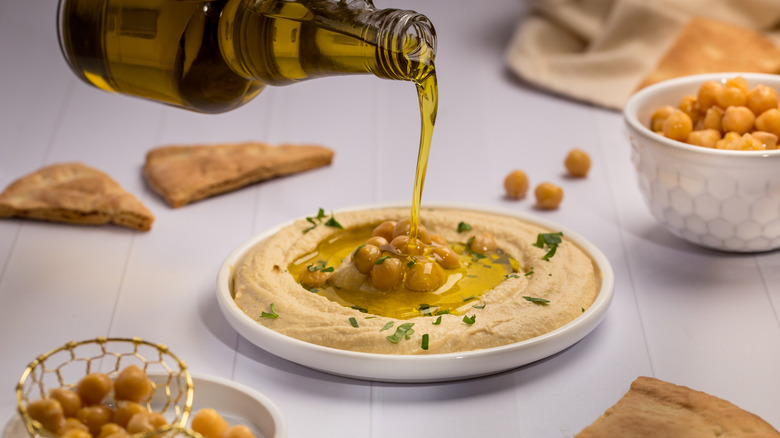Your Homemade Hummus Will Taste Bitter Unless You Do This
Homemade hummus is almost always superior to store-bought versions, except when the final product tastes bitter. Even the creamiest hummus made at home can end up with a bitter taste, but don't worry: It's not you — it's a step within the process. One of the many mistakes that are ruining your homemade hummus is the order in which you're blending the ingredients. Though hummus recipes typically ask you to process together all of the ingredients, if oil is called for, you shouldn't add it until everything else in the recipe has first been blended.
Why? OIive oil has naturally bitter, water-soluable compounds known as phenols, which are drawn out when emulsified with water-based ingredients like lemon juice, vinegar, or water. This also happens when olive oil is exposed to high heat. Olive oil has a moderately high smoke point— between approximately 374 to 410 degrees Fahrenheit. Although even the highest-speed blenders can't reach these temperatures, the heat they produce while blending, coupled with chickpeas fresh out of a piping hot pressure cooker, could cause the oil to oxidize and therefore turn its fruity flavor bitter.
So when making hummus, set the oil aside and blend the other ingredients in the recipe first. Once the hummus has a whipped-like consistency, add the oil and blend for no more than 30 seconds. You can also gently stir the oil into the hummus until well combined.
Troubleshooting bitter hummus
Want to rescue your bitter hummus? Try re-blending the entire mixture: First blend a 1/2 cup of garbanzo beans into the bitter hummus and then taste. If your hummus is still bitter, add another 1/2 cup of garbanzo beans, along with one teaspoon each of sugar and salt, one tablespoon of fresh lemon juice, and two tablespoons of water. Blend again and taste. You may need to adjust the flavor once more until the bitterness becomes balanced with the other ingredients. Alternatively, you could also try any of these five single-ingredient hummus additions.
There are also a few other ingredients that could be causing the bitterness. Tahini can sometimes taste bitter on its own, depending on the brand and how it's processed, so consider reducing the amount of tahini used or substituting it with another nut or seed butter, such as sunflower seed butter or cashew butter. Also, be careful not to overdo the amount of aromatics, spices, or acids, like garlic, paprika, or lemon juice, all of which can cause a bitter taste. As a general guideline, blend any such ingredients after thoroughly blending everything else. Adding a drizzle of olive oil or sprinkling spice on top of the hummus prior to serving also cuts the bitter taste and adds an extra kick of flavor and garnish.

